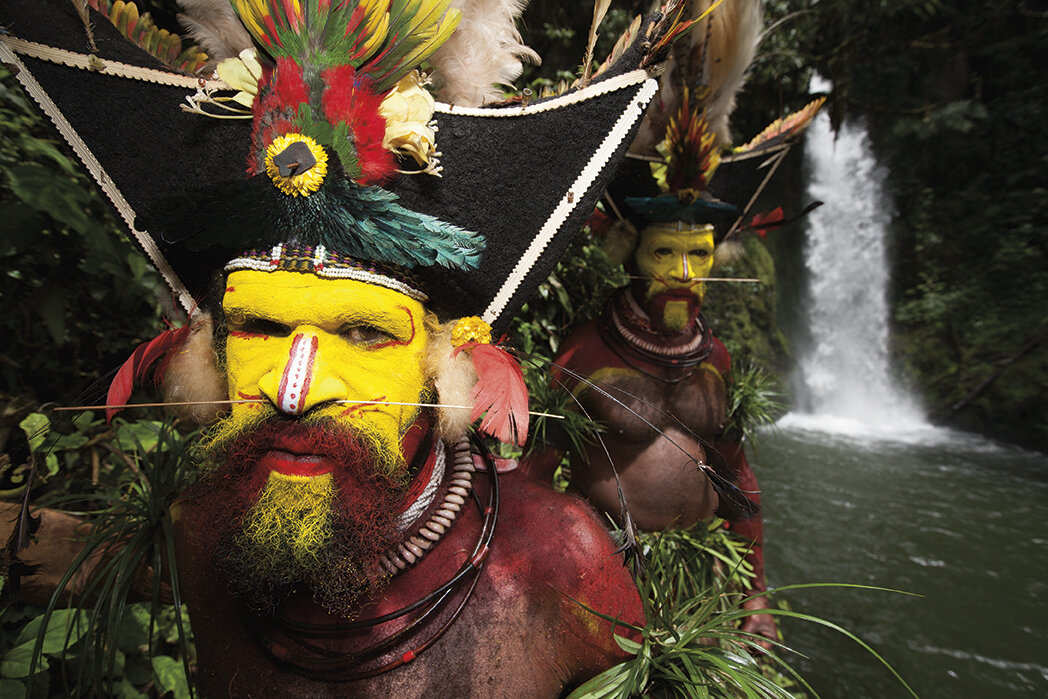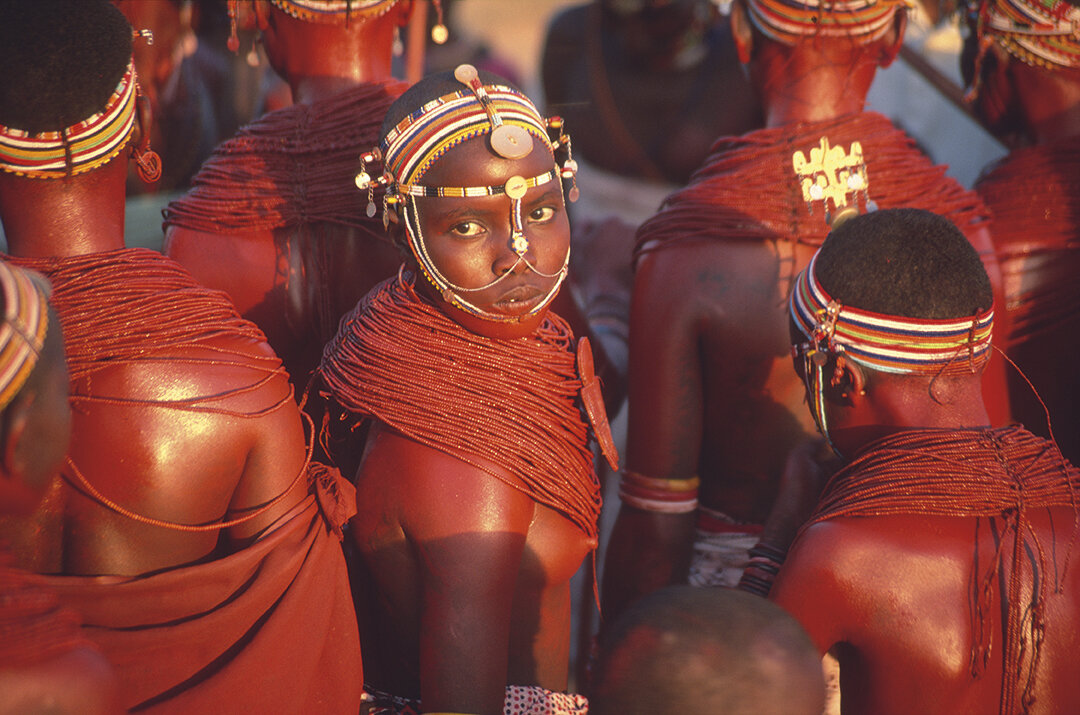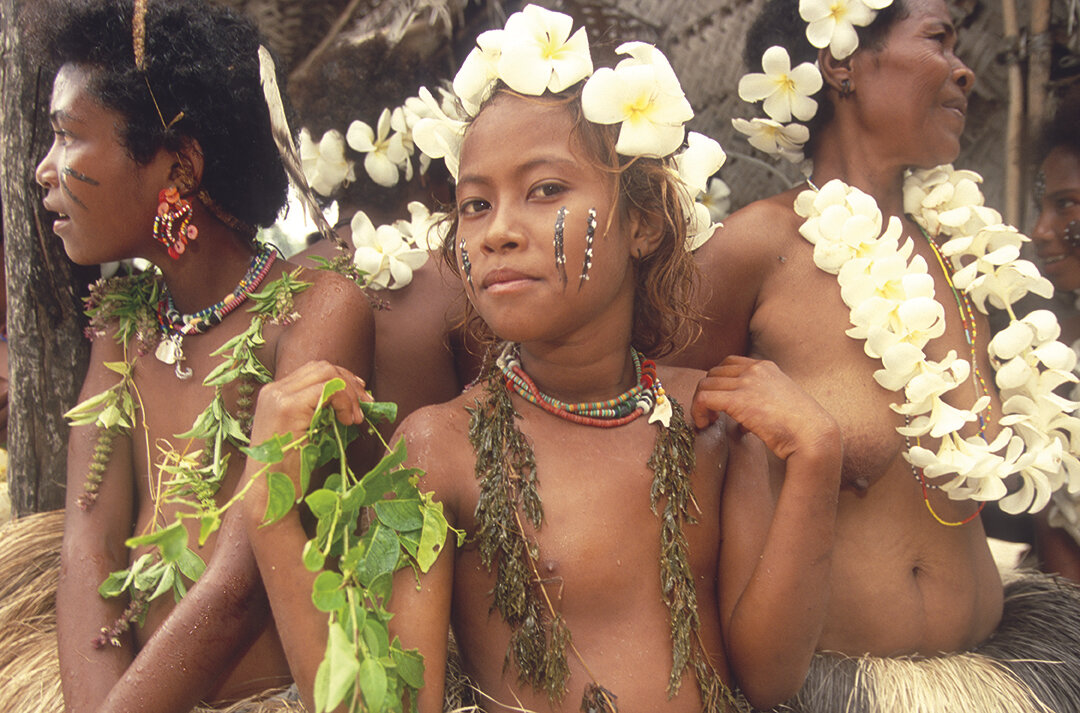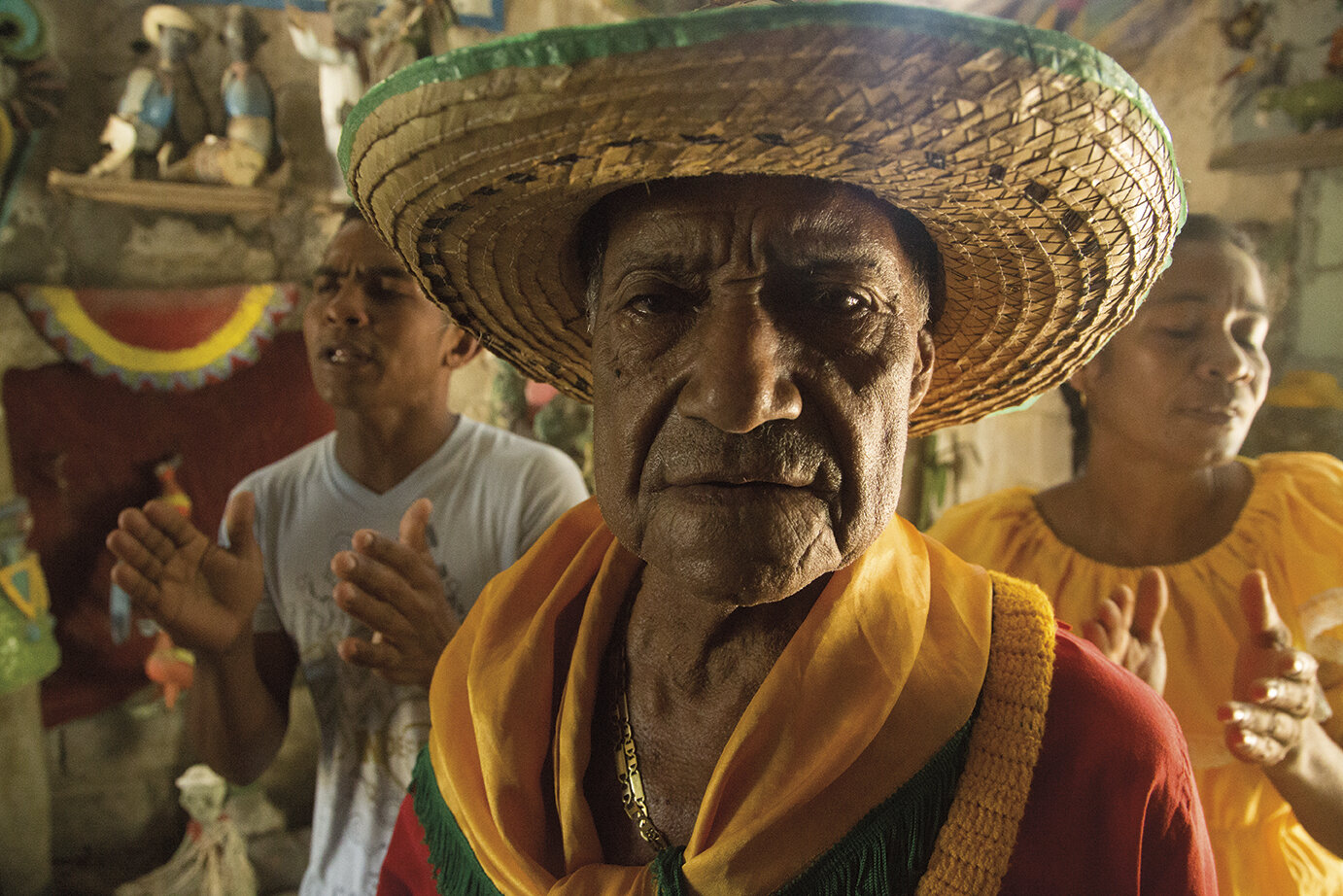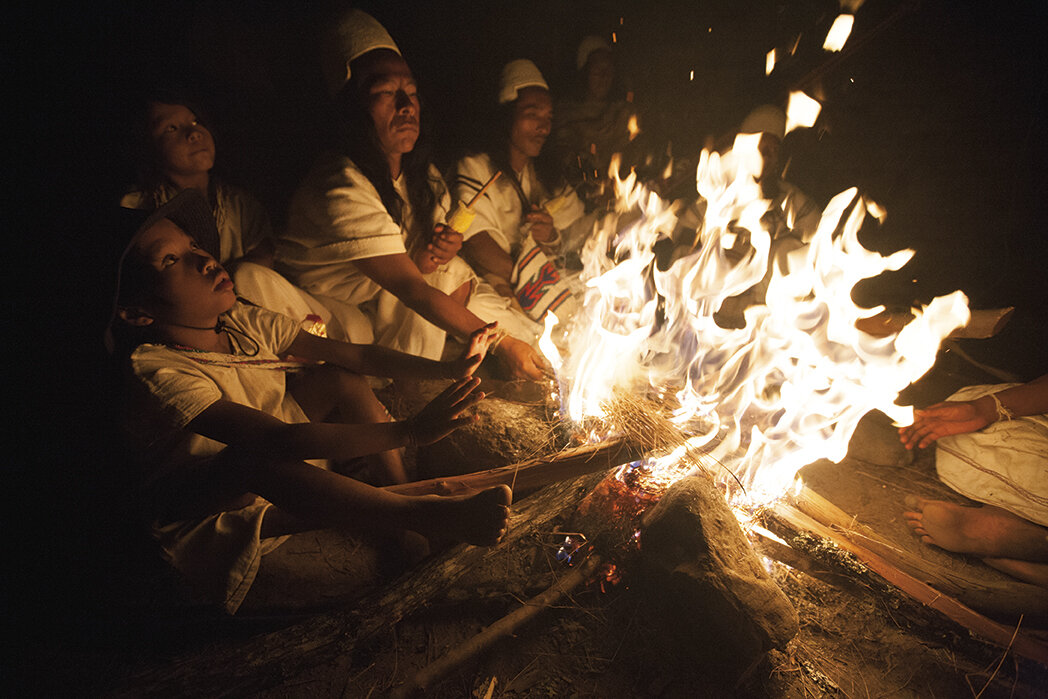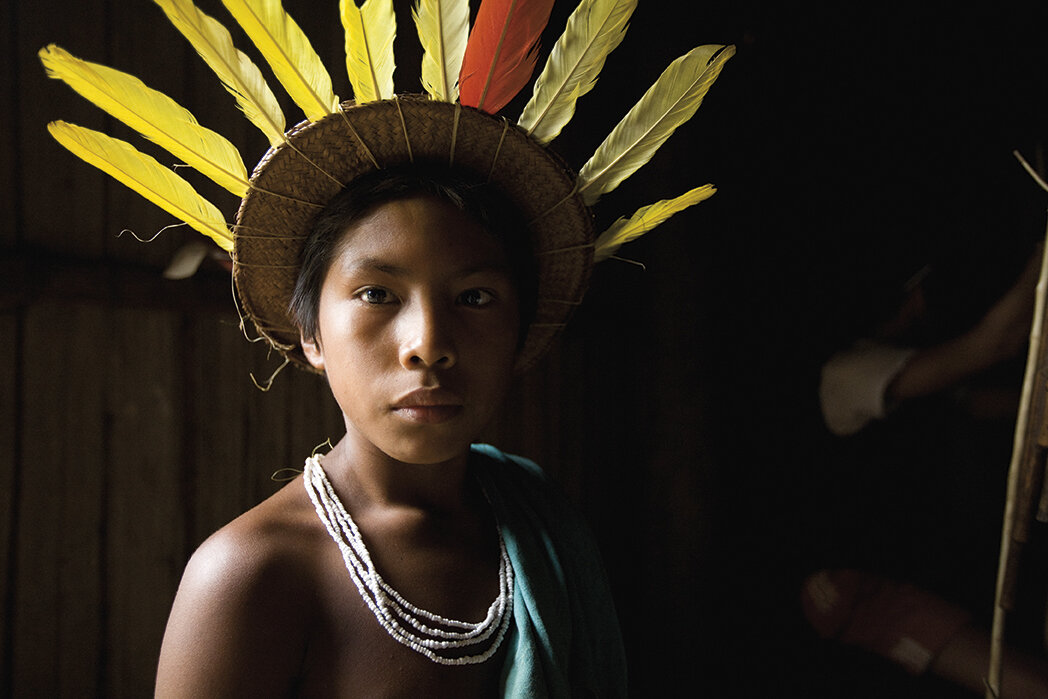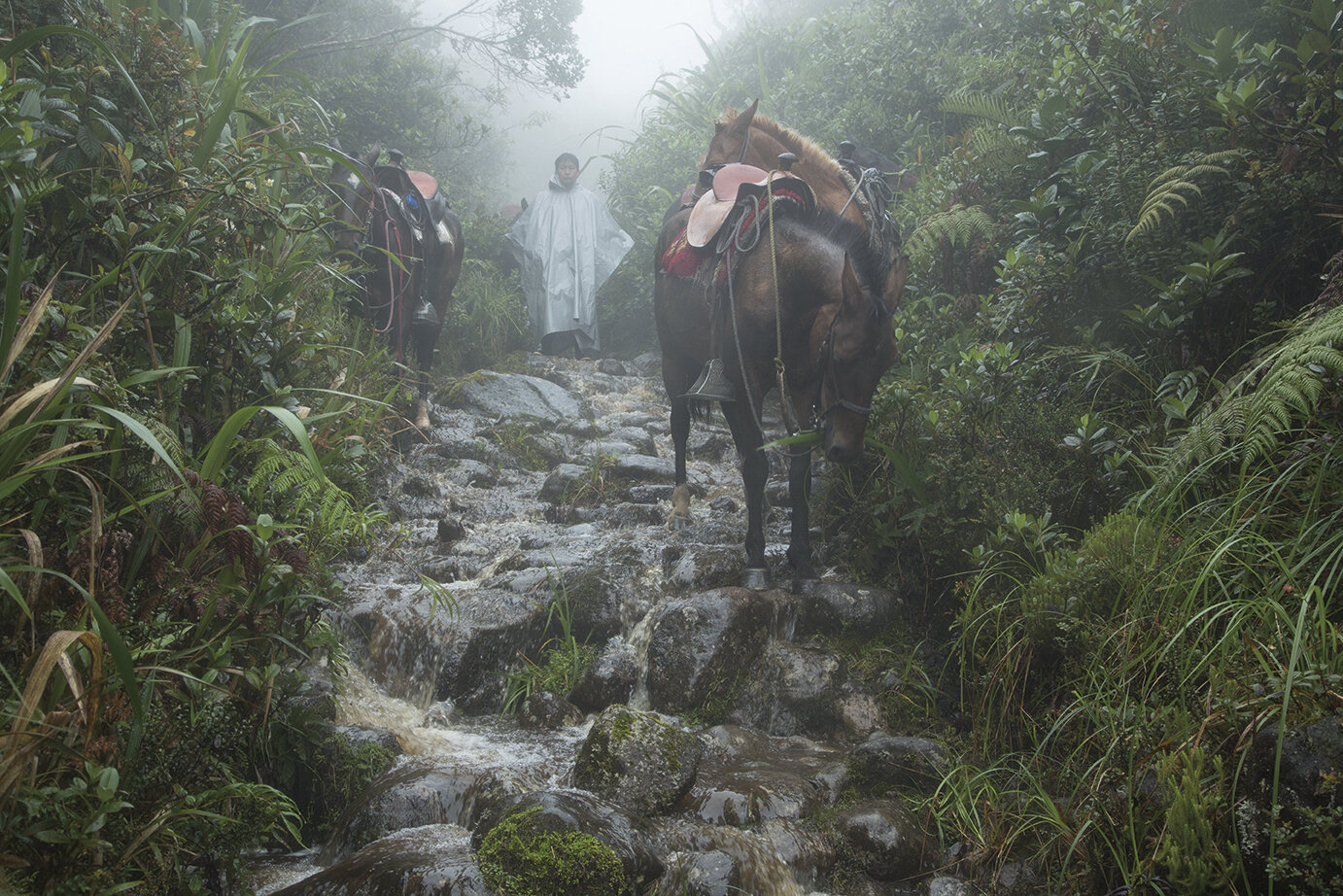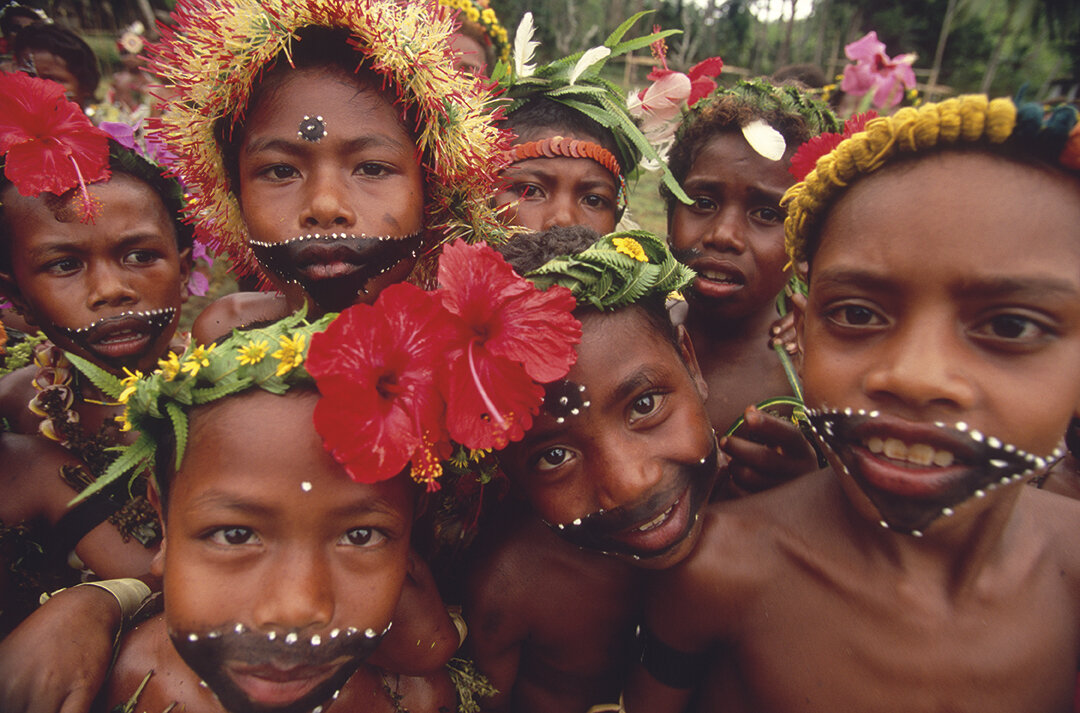Exploration or Adventure?
text and images by Wade Davis
If there is a clear message emerging in the wake of the pandemic, it is this: Nature, for one, is asking us to be humble, to awaken at last to the realization that we are biological beings dwelling on a living planet, sharing its bounty with all sentient creatures, all forms of life. As we’ve seen in recent months, Nature regenerates at a remarkable rate—caiman once again darkening the sands of Baja California; wild boar in the streets of Barcelona; flamingos by the thousands in the wetlands of Mumbai; and wolves and bears returning to the valley floor at Yosemite. The canals of Venice are clear for the first time in modern memory. In Colombia, the Río Medellín runs through the city as if a mountain stream. In Asia, city dwellers long shrouded in smoke and industrial haze in Delhi, Lahore, and Kathmandu are awakening for the first time to blue skies and white mountain summits scoring the horizons. In the resilience of Nature lies the promise of a new dream of the Earth. The climate crisis takes on a new urgency. Our exposure and vulnerability call out for global action and change. In the light of this revelation, this new hope, what will become of travel, or the very notion of movement?
Like so many, I look back on my frenetic travel schedule pre-pandemic as if it were a violent hallucination. Not a week went by without a flight somewhere, often overnight, in a whirlwind of movement that had me celebrating the proximity of Washington’s National Airport as the single greatest feature of living in the nation’s capital!
For more than a year now, living on a small island within easy reach of Vancouver, a city I’ve not visited since the pandemic began, I have spent my time in a small house on a hill, surrounded by artifacts and books, each with a story to tell. Settled in place, I recall in amazement the many lands I’ve known, astonished but also haunted by the ease with which I reached them, a compression of geography that has been both the blessing and curse of travel in our time.
The most geographically isolated place I recall is the small islet of Bodaluna in the Trobriand Islands, off the eastern coast of Papua New Guinea, which I reached with fellow travelers, having been invited as a lecturer aboard the National Geographic Endeavour in 2006. We sailed out of the rising sun, laid anchor for the morning, and landed in a fleet of zodiacs on an island of white sand that was in no place more than a meter above sea level. Upon our arrival, an astonished group of villagers hastily adorned their hair with plumeria blossoms and cobbled together a traditional dance. It made for a colorful encounter for the ship’s passengers, yet something was clearly missing. The facility by which this travel prize had been secured diluted the experience, leaving it devoid of spice or sensation, emotion or spiritual memory. It was travel reduced to commodity, purchased but not really earned, a cold efficiency that left the paying guests talkative and content, even as they trudged back to the zodiacs at midday in a state of cultural and psychic disorientation.
All of this is to suggest the obvious. That it is the quality of a journey, not the remoteness of its destination, that lends meaning to travel, and it is time alone that allows a traveler to be transformed, which ultimately is the goal of every journey. In a cocoon of familiar comfort, a tourist flies to the most remote outpost of the planet in a day, with absolute certainty that he will be able to scurry back home in a week, just in time for a family wedding. The traveler, by contrast, is loyal to everywhere and nowhere, with home being the ground beneath one’s feet, and movement the natural way of things.
Over my many years at the National Geographic Society, I visited dozens of countries and dropped in on scores of strange and wondrous scenes, from the traditional navigators of Polynesia to the salt caravans of the Sahara; from the Peoples of the Anaconda in the northwest Amazon to the hunters of the northern ice in Greenland; and from the monks of Kathmandu to the thunderhoof shaman of Mongolia. In every case, a scientific quest served as a metaphor, a lens through which to interpret a culture and acquire personal experience of the other.
Hovering over all of these journeys, however, was the constraint of time, the call of domestic responsibilities, and the tyranny of professional obligations and schedules determined by budgets and deadlines. We may have fancied ourselves as sophisticated travelers, but in essence we were not far removed from those who flock to the banner of commercial operators. We traveled for the most part in comfort, with fixed times of departure and return. The experience was fully anticipated and the itinerary planned well in advance, if only to ensure that we would return with product in hand, be it a film, magazine article, or book.
When I was 20, by contrast, I left for South America with a one-way ticket, and no plans save a promise not to return to the States until Richard Nixon was out of office. I had just a small backpack of clothes, and two books: George H. M. Lawrence’s Taxonomy of Vascular Plants and Walt Whitman’s Leaves of Grass. In an early travel journal, I wrote: “Risk discomfort for understanding.” In my 15 months away, I would make but a single phone call home, and that only after learning by telegram that my father had suffered a severe heart attack.
At the time I believed that bliss was an objective state that could be achieved simply by opening oneself unabashedly and completely to the world. Both figuratively and literally I drank from every stream, even from tire tracks in the road. Naturally, I was constantly sick, but even that seemed part of the process, with malaria and dysentery fevers that grew through the night only to break with the dawn. Every adventure led to another. At one point, I set out to traverse the Darién Gap. After nearly a month on the trail, I became lost in the forest for a fortnight without food or shelter. When I finally found my way to safety, I stumbled off a small plane in Panama with only the ragged clothes on my back and $3 to my name. I had never felt so alive.
With me on that adventure was a most colorful character, Sebastian Snow, a sometime journalist later eulogized in the British press as “an eccentric explorer…the last of the gentleman adventurers.” Sebastian comes to mind whenever I hear of someone rowing a skiff across the Atlantic, base-jumping from some impossible height, or dying on the northeast ridge of Everest while waiting in queue to attempt the Second Step.
Sebastian and I met in Medellín in 1974, shortly after he reached the city, having walked the length of South America from Tierra del Fuego. His destination was Alaska. As a boy, Sebastian broke his thigh playing rugby at Eton and doctors said he’d never walk again. His mission was to prove them wrong.
At 21, Sebastian followed the Amazon from source to mouth, a journey only made possible by those hired along the way, local guides who did the heavy lifting and generally kept him alive. His first book, My Amazon Adventure, includes a foreword by General E. F. Norton, George Mallory’s close companion and the leader of the 1924 British Everest expedition. Recalling his own experience with porters in Tibet, Norton went out of his way to downplay the role of Sebastian’s native companions, penning a disclaimer that speaks to a core conceit. “Without the driving power of the European,” Norton wrote, “these feats are not within the scope of local talent.”
This was certainly true, but it was hardly an issue of character or the triumph of British pluck. The locals simply had other priorities in their lives, and, from their point of view, better ways of spending their days. Sherpas accompanied the British climbers in the 1920s because it’s what the job demanded, not because they had any interest in summiting Everest. The Shipibo were content to take Sebastian’s money and escort him downriver, with little concern about the purpose or fate of his journey.
By the time we met, Sebastian was 45, exhausted and well worn, having walked 14,000 kilometers in 11 months. My job was to lead him through the Darién Gap, a notorious stretch of rainforest and swamp that separates Colombia from Panama, the one roadless passage on his intercontinental itinerary. The role fell somewhere between companion and “local talent.” I hardly qualified as a guide, for I knew little about where we were going, which didn’t concern Sebastian in the slightest. He courted trouble, just as he cultivated eccentricity, if only as fodder for his books.
Sebastian’s long walk had been sponsored by a British newspaper, and his only obligation was to write periodic dispatches for a column that appeared on an irregular basis. Just what he had to say in these reports was something of a mystery. In all his months on the road, he had never strayed from the tarmac of the Pan-American Highway. In Ecuador, he had been joined for a few days by his old friend, legendary British climber, Chris Bonington. After a day, Bonington took to the hills, walking cross-country to escape the boredom.
Sebastian spoke no Spanish and made no effort to pick up the language. If you speak the Queen’s English loud enough, he claimed, anyone will understand. He lived by this adage, which was amusing but didn’t inspire confidence that anything meaningful had been learned during his mostly solitary year’s sojourn. The book that ultimately emerged from his adventure, The Rucksack Man, features a breezy introduction by the well-known travel writer Eric Newby, another of Sebastian’s friends. Newby’s contribution, a tongue-in-cheek send-up of Sebastian, is as substantive as any passage in the book.
Toward the end of our time together, Sebastian and I met an American engineer in Panama who asked why he had bothered to spend a year walking north on a highway. Sebastian, in a rare moment of reflection, described his journey as “an ongoingness into a neverendingness.” The American didn’t buy it. “Seems to me,” he quipped, “more like going from nowhere to nowhere and seeing how long it takes you.”
Ernest Hemingway once said that the most important credential for a writer is to have something to say that the world needs to hear. Sebastian was a good man, but he failed this simple test. He had followed a highway the length of a continent, while learning almost nothing of the people or the lands through which he’d moved. After so much effort, the story of his final journey, for sadly it would be the last, is distilled in a series of self-deprecating anecdotes that function largely to keep the narrative focused on the traveler, not the place. French anthropologist Claude Lévi-Strauss famously dismissed the entire genre of travel literature as nothing but “grocery lists and lost dog stories,” before going on to write perhaps the best travel book of all time, Tristes Tropiques. Still, he had a point.
Disregarded in its day and now long forgotten, The Rucksack Man, to be fair, was not the product of literary ambitions. Sebastian’s genre was the Englishman out of his element, a perfect frame for his misadventures, recounted in his inimitable way. At 20, I’d never been a character in a book, and Sebastian could not have been more generous. Though I struggled to recognize myself in the stalwart companion he described, I certainly saw in his description a person I aspired to be. At an auspicious moment in a young life, Sebastian made me feel like I was somebody. He was very kind.
With the publication of The Rucksack Man, my writing appeared in print for the first time, albeit passages from a journal that Sebastian lifted and passed off as his own, which seemed at the time a fair exchange. He obtained some much-needed content, while I saw my words alongside his, entire paragraphs, a juxtaposition that left me confident that if this mad but endearing Englishman could write books, so, too, could I. Only books, I promised in a flush of pride and purpose, that would have something to say, informed by original research and not xeroxing, written and not simply typed; a lesson learned from The Rucksack Man, perhaps to a fault.
For my latest book, Magdalena: River of Dreams, I came to know the river, the Mississippi of Colombia, in all its dimensions. I experienced it in all months of the year, with every shift of the seasons, from the headwaters in the Macizo Colombiano to the sand and stones of the Caribbean shore. At no point, however, was I tempted to paddle the Magdalena from source to mouth, or to travel its length in a single journey, hitching rides perhaps on a series of barges and river boats. Admirable as such achievements might be, my goal was not to produce a study of self, an account of a personal journey. It was, instead, to write a biography of Colombia through the metaphor of the river that made possible the nation. As narrator, I would merely serve as a bridge between people and places, the present and the past. When in doubt, an author should always get out of the way. Building a narrative around oneself is to travel writing what false heroics are to exploration.
In the fifth century BCE, the Greek historian Herodotus explored the edges of the known world. Upon his return to Greece, he recounted a story from the Persian court, a morning when the emperor, Darius, gathered representatives of two of his subject peoples, one a culture that cremated their dead, and the other a people that reputedly ate their dead. Darius asked each whether they might consider emulating the death rituals of the other. Both expressed horror at the thought.
Herodotus concluded from this the obvious: every culture favors its own traditions and looks down upon those of any other. Five centuries before the common era, this astute observer discerned the trait that more than any other has haunted humanity since the dawn of awareness: cultural myopia, the idea that our way is the right way and everyone else is a failure to be us, even if they don’t know it.
Herodotus observed but did not judge. This is what made him so remarkable, and so vilified upon his return to Athens. Four hundred years after his death, the Greeks were still mad. Plutarch famously accused Herodotus of sympathizing with barbarians and, in doing so, betraying his own people. Herodotus might well have avoided Plutarch’s wrath had he simply recounted what he ate for breakfast, the names of the horses that had carried his kit, or how long it had taken to swim a river previously unknown to the Greeks and thus newly discovered by him.
Happily, for history, Herodotus recorded instead what he learned, phenomena that had nothing to do with his personal experience, and what he saw beyond the shadow of self—the beauty of the land, the strange creatures of the marshes, the poetry of the people. He traveled as a sage, eyes wide open to wonder. His explorations took him beyond the exotic into new realms of knowledge and belief, the spiritual home of the curious, the limitless horizons of the human imagination as brought into being by culture. At the very dawn of Western civilization, Herodotus recognized the human legacy as the subject most worthy of his explorations.
In Vedic scripture there is a notion that as a person passes through the stages of life, from childhood to youth, from householder to sage, there comes a time when he is freed of earthly ties, liberated to wander. While I am not about to renounce the world, or abandon my family, I do see this as a powerful metaphor. Travel as pilgrimage, with each step taking one closer to the goal, which is not a place but a state of mind, not a destination, but a path of illumination and liberation. That is the ultimate quest of the pilgrim.
In a marvelous essay, Where Heaven and Earth Come Closer, Eric Weiner writes that the goal of travel is to find and enter the “thin places,” those moments, for they exist in time as much as in space, “where the distance between heaven and Earth collapses and we’re able to catch glimpses of the divine.” These encounters need not have anything to do with religious devotion. They are simply experiences that break open the mind, shatter convention, allowing one to abandon old assumptions and see and feel the world anew. In short, those transcendent moments when, for at least a beguiling instant, bliss does indeed appear to be an objective and achievable state of being.
As I contemplate travel in this new era, which mercifully is now upon us, I hope to find the courage to travel in such a way, perhaps down the Mother Ganga, from Kailash to Gangotri, across the Indo-Gangetic Plain to the sea. Or along the Silk Road, Beijing to Damascus, across the Sahara from the west, or south through the still unknown lands of Ethiopia. Perhaps across the wild reaches of Siberia, or along the length of the Andean Cordillera following the traces of the Inca roads that fall away like mercury into the mist of the cloud forests. As important as where to go will be how to travel—on the ground, unfettered by time, and utterly devoted to spending the last active years of a most fortunate and favored life in pursuit of knowledge and wisdom, revelation and joy.

